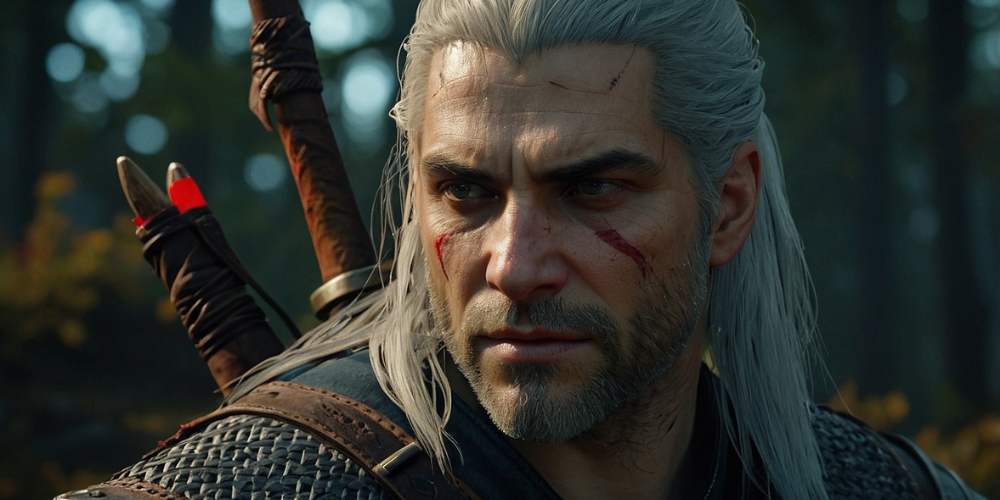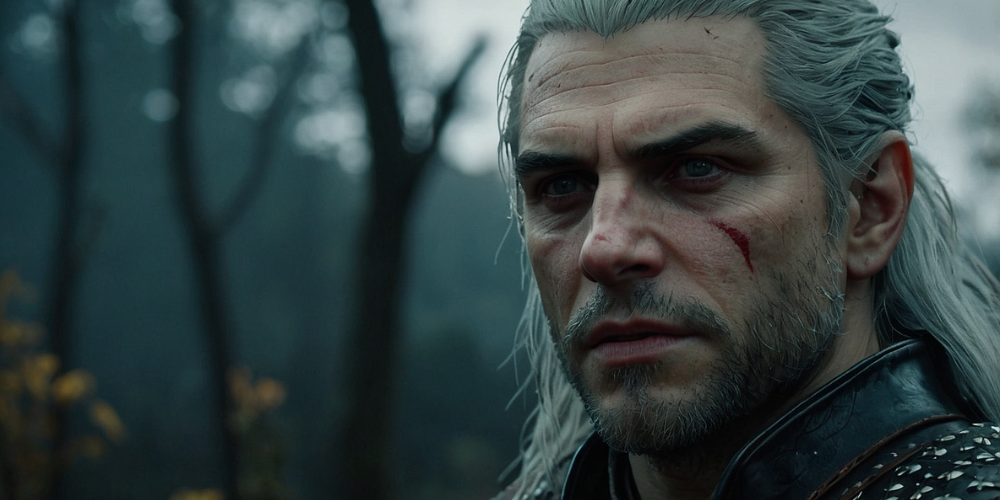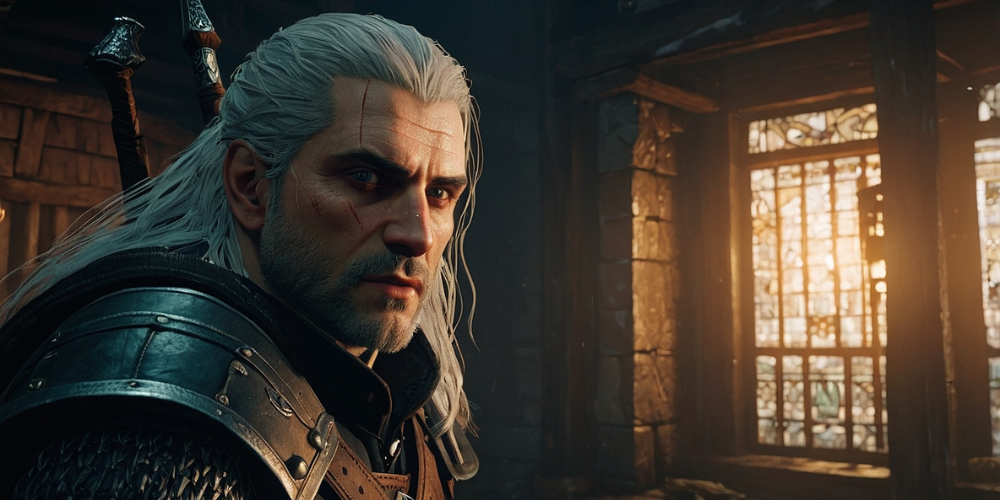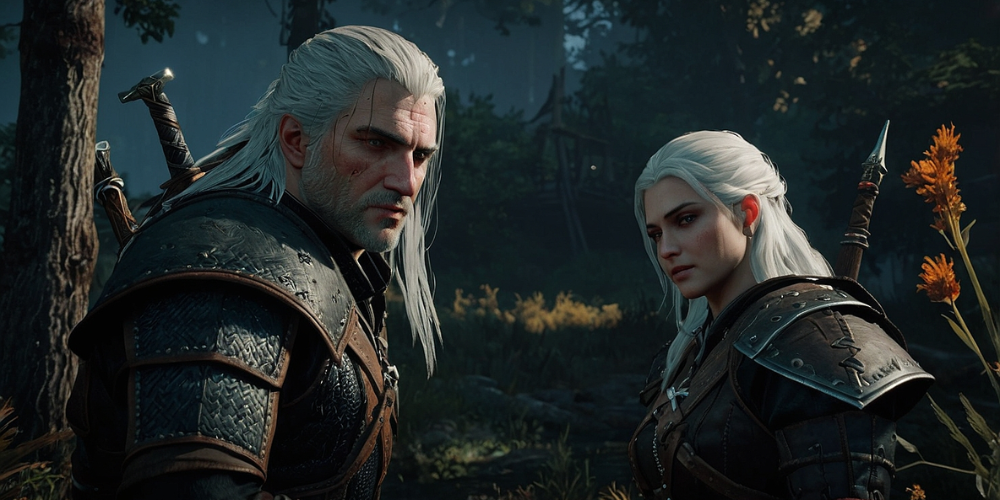The Impact of Moral Choices in The Witcher Game Franchise
Oct-11-2024

As a long-time fan of the Witcher game franchise, I've often found myself immersed in the richly crafted universe created by CD Projekt Red. What captivates me the most is how this intricate world challenges players to engage with a complex narrative filled with moral ambiguity. Unlike typical RPGs, the choices I make as Geralt not only affect the immediate outcomes of quests but also resonate throughout the game's world in profound ways.
The Weight of Choice
From the moment I first stepped into Geralt's boots, I was acutely aware that every decision would carry weight. Whether I was navigating relationships with other characters or deciding the fate of a village, the ramifications of my choices always loomed large. I found it fascinating how the games employ a branching narrative that allows for an array of potential outcomes, forcing me to weigh my options carefully.
The Moral Grey Area
One of the aspects that sets The Witcher apart is the moral grey area in which it operates. There aren’t clear-cut heroes and villains; instead, I encountered a series of characters with nuanced motivations. The choices presented to me often offered no straightforward “right” or “wrong” path. This ambiguity sometimes left me in moral dilemmas, compelling me to contemplate what my choices said about me as a player.
The Consequences of Choices
Reflecting on pivotal moments in the game, I realized how many choices led to far-reaching consequences that unfolded over many missions or even across the entire game's arc. For example, when deciding the fate of the striga in the first game, I had to confront my bias against monsters and consider the striga's tragic backstory. The decision I made echoed in my conscience and shaped my interactions with other characters moving forward.

Relationships and Their Dilemmas
Then there were the relationships I developed with characters like Yennefer, Triss, and even the morally ambiguous Dandelion. My choices could either foster deeper connections or irreparably damage them. I vividly remember a chance encounter with Yennefer where my dialogue options affected our relationship's trajectory. This blend of heartfelt storytelling and complexity made it incredibly rewarding to navigate these relationships, anchoring me further into the emotional landscape.
Political Intrigue and Its Moral Complexities
The Witcher isn't just about monster-slaying; it’s deeply enmeshed in political intrigue, which is rife with moral complexity. As I considered siding with different factions, I often found myself caught in the crossfire of power struggles that had devastating implications for the innocent. Do I support the king’s ambition at the cost of sacrificing the disenfranchised, or do I take a stand for justice that may lead to ruin? Every decision echoed long after I made it.
Monster Ethics
Monsters in The Witcher are not merely threats; they represent the consequences of human folly and moral failure. I learned that approaching monsters with understanding could yield unexpected results. The game constantly challenged me to question my preconceived notions about what makes a monster, sometimes forcing me to empathize with creatures that I instinctively thought were purely malevolent.
Pushing the Boundaries of Morality
A defining moment in my journey was when I was faced with the choice of whether to execute a defeated foe or show mercy. In this instance, rather than resort to violence, I chose mercy, allowing the character to escape. The immediate sense of righteousness I felt quickly transformed into uncertainty as I pondered the repercussions of this act. Would they return to haunt me or prove my choice justified? Such moments continually placed me in the throes of moral introspection.

Episodic Story Arcs and Their Lessons
The episodic nature of quests led me to appreciate how the smallest choices could lead to major consequences in future story arcs. Each side quest I undertook wasn’t merely a distraction; they were rich with narrative value and moral lessons. For instance, my interactions with characters in side quests frequently illuminated the game's central themes of destiny, choice, and the consequences of those choices.
The Burden of Destiny
As Geralt, I struggled with the concept of destiny versus free will. Many characters around me believed that fate dictated their decisions, while I was given the freedom to change the course of events. However, each choice had me questioning whether I was truly in control or merely following a path laid out for me. This internal conflict became more profound as I navigated through the stories of Ciri and her relationship to destiny.
Ciri's Role in Moral Choices
My relationship with Ciri became a pivotal aspect of my journey. As I guided her and made decisions for her future, I was acutely aware that my choices were shaping not just my destiny, but hers as well. The realization that I held such influence over another character's life added a haunting weight to each decision I made in her presence. Would she embrace the lessons I imparted, or would I lead her down a darker path?
Exploration of Human Nature
The franchise's narrative intricacies prompted me to think deeply about human nature and morality. Each character I encountered came with their own struggles, desires, and moral failings. I found myself reflecting on questions about loyalty, sacrifice, and justice while interacting with these richly designed characters. The game empowered me to confront uncomfortable truths about myself and the world around me.

Gameplay Mechanics Supporting Moral Choices
Mechanically, the choices I made were mirrored by the game's design. Dialogue trees allowed for diverse responses, enabling me to express my character’s personality. At times, I would encounter situations where choices presented themselves without adequate time for reflection, creating an adrenaline-fueled urgency. This design choice initiated a thrilling tension—my instinctive decisions often revealed my core values.
Revisiting Choices: A Reflection on Alternatives
The allure of The Witcher’s world and the myriad of choices available always beckoned me to replay it. Each playthrough revealed different pathways, introducing me to outcomes I had previously overlooked. I discovered that my moral compass shifted with each new game, altering my perspective on decisions. It was as though I was exploring different facets of my own morality in tandem with Geralt’s journey.
Cultural and Philosophical Influences
The game’s narratives are often imbued with cultural and philosophical influences. As I engaged with themes like utilitarianism, virtue ethics, and existentialism, I found myself prompted to think critically about the moral underpinnings of the choices presented. The Witcher pulled from a wealth of historical and literary sources, weaving a rich tapestry that questioned the very nature of morality through compelling storytelling.
Long-Lasting Effects on Gamers
The moral choices portrayed in The Witcher franchise have extended beyond the screen and into real-life reflections. I began examining my own moral choices more closely, pondering how they impact those around me. The game has fostered a sense of empathy and moral awareness that I carry into my interactions with others. It highlights how storytelling in video games serves as a powerful tool for individual development and introspection.







